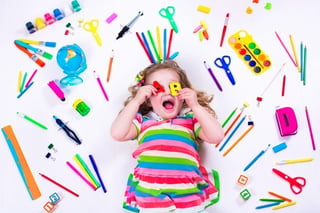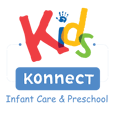Understanding the Transitional Kindergarten Curriculum
California Education Code section 48000(d) tells us that Transitional Kindergarten (TK) is “the first year of a two-year kindergarten program that uses a modified kindergarten curriculum that is age and developmentally appropriate,” but leaves individual school districts to decide the meaning of “age and developmentally appropriate.” TK is useful for children who may need a little extra time to develop socially, emotionally or intellectually.
 What is Transitional Kindergarten?
What is Transitional Kindergarten?
Transitional Kindergarten is not a replacement for either preschool or traditional kindergarten; it is a conduit between the two. As outlined in the California Department of Education's Frameworks, the goal of TK is to give some children additional time to gain the skills and knowledge other children get in a single year of traditional Kindergarten. This means the two main subjects, mathematics and English Language Arts, can be explored more deeply, with more review and reinforcement, than in one-year Kindergarten programs.
TK Mathematics
Under California's Framework, mathematics in the Transitional Kindergarten curriculum focuses on two skills:
- Representing, relating and operating on whole numbers
- Geometry, with special attention on identifying and describing shapes and space (including analyzing, comparing and composing shapes)
Mathematics is integrated into play, so children do not feel the subject matter is set apart from their day of play and friendly interaction.
TK ELA
Key themes of ELA and literacy instruction in Transitional Kindergarten curriculum, according to the California ELA Framework, include:
- Making meaning
- Language development
- Effective expression
- Content knowledge
- Foundational skills
Especially important for children struggling to acquire language skills, the additional year afforded by TK allows children to learn positive attitudes toward learning itself. Their natural curiosity about their world is rewarded through texts, play, activities, and exploration.
TK Social and Emotional Learning
The Transitional Kindergarten curriculum supports a child’s social and emotional development. Key to well-rounded, healthy children is explicit instruction in such issues as:
- Identifying emotions
- Following rules
- Focusing attention
- Resolving social conflict
- Playing and working independently and interdependently
What questions do you have about Transitional Kindergarten curriculum? Could it help or harm your child? Let us know your thoughts in the comments section below.
